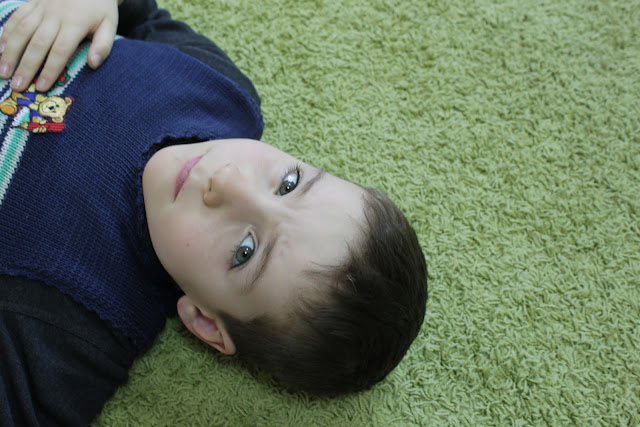Lewis Carroll, Alice in Wonderland
If you had told me two years ago, when I was graduating with my doctorate in occupational therapy, that in just two years I would be advocating for my profession in a foreign country where it doesn't exist - I would have looked you straight in the eye and said, "That's Impossible."

But yesterday, on a dreary Ukrainian morning, the age-old saying "Never Say Never" became a reality. Invited by Dr. Bashek, the head doctor of Zhitomir's pediatric network and a well-respected medical figure in all of Ukraine, I was asked to speak to a group of leading pediatric neurologists in the region about Occupational Therapy. There I was - standing in front of more than 60 of the top pediatric neurologists in the Zhitomir region, speaking on behalf of the Occupational Therapy profession and sharing how it can make a difference in the lives of the children with disabilities that they treat. I also seized the opportunity to advertise for Mission to Ukraine's services and share about their heart for this work. What an honor and privilege it was to have this opportunity!
In OT school we are taught that every human being - regardless of level of disability - deserves to live a life of individuality and dignity. We are taught that by promoting and preserving their ability to participate in life's meaningful activities we can also preserve their human connection to the world. This is what I wanted to nail into the hearts of these doctors. And, hopefully, my presentation laid the foundation for change yet to come in the lives of Ukraine's children with disabilities.
Sometimes I have to stop and count the steps from where I am to where I started. Two years ago, when I embarked upon my new career as an Occupational Therapist, I had no idea that I would be led to the country of Ukraine. I had no idea that I would be working internationally to support organizations like Mission to Ukraine around the world....or that I would be living my dream of forging a future of equality and acceptance for children with disabilities on an international scale. Yet, each step along the way has brought me to the place that I am now. And as I look back at the footsteps of my past I become even more determined to keep moving forward, no matter how impossible it may seem.


















